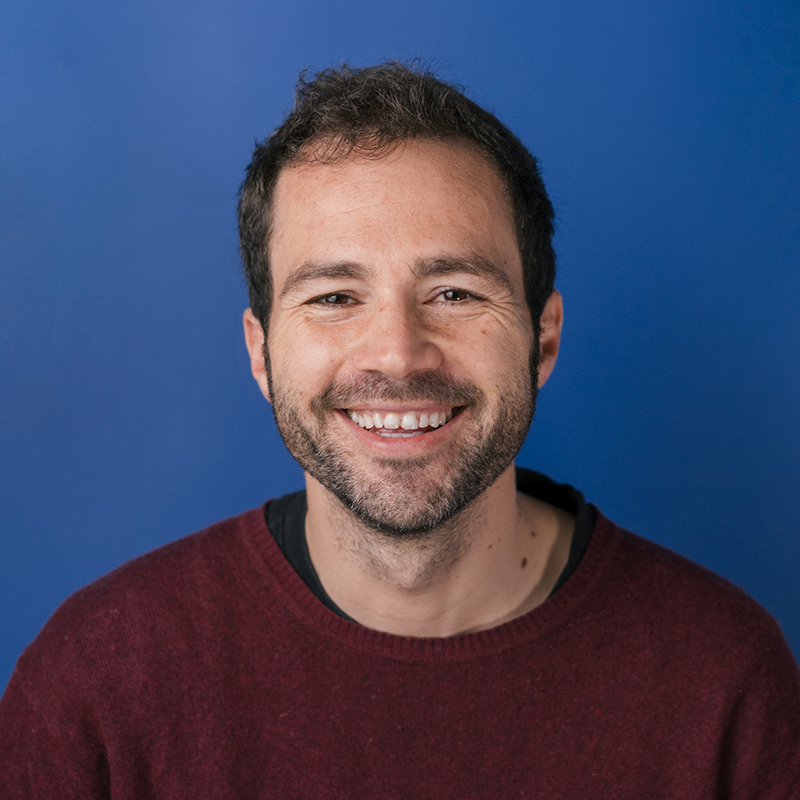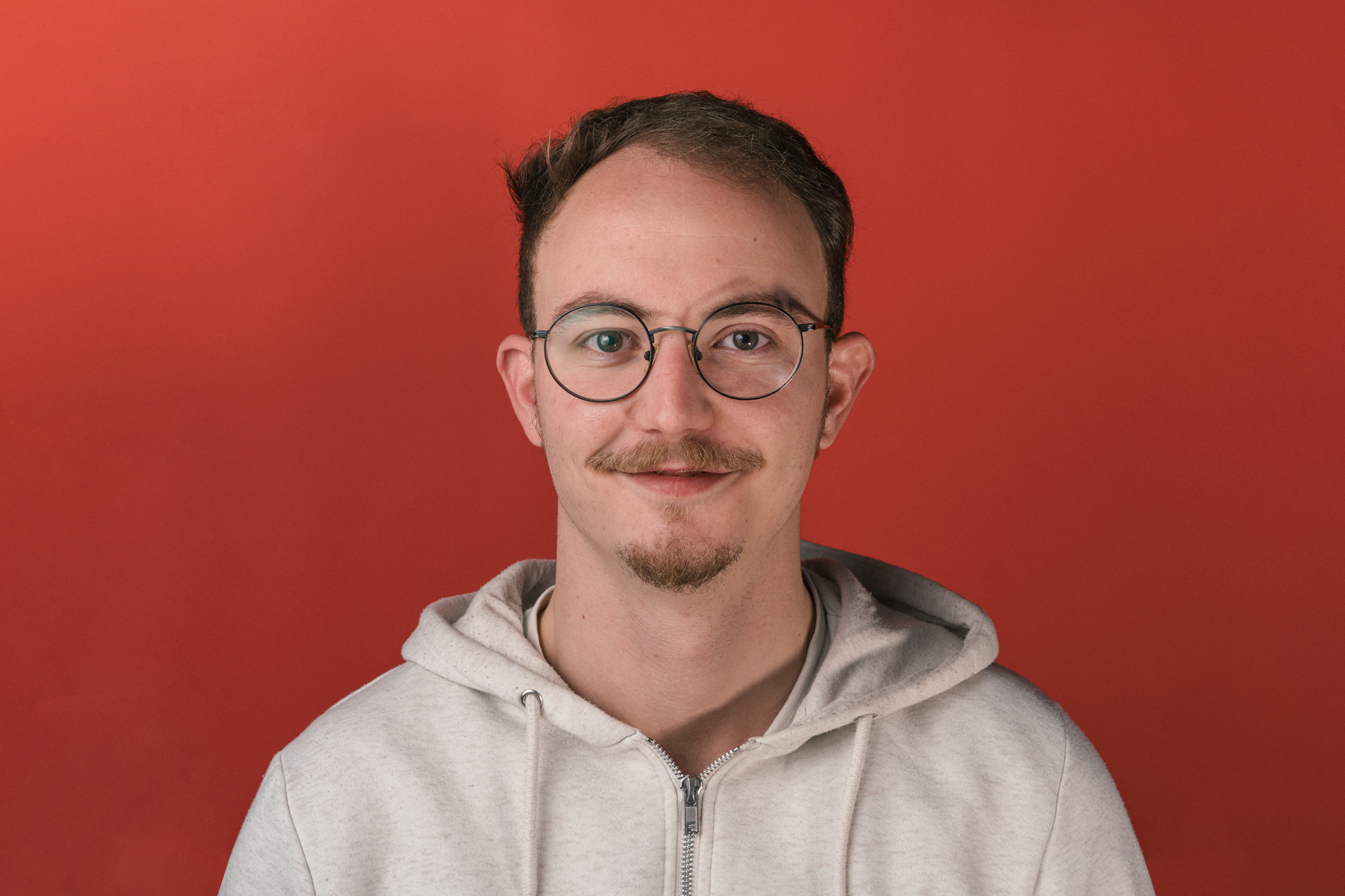Syllabus⇝
The course aims to fill knowledge gaps in digital fabrication and physical computing while fostering critical reflection about how technologies are designed, used, and reimagined.
This two-week intensive program combines critical exploration of everyday technologies with the creative fabrication of useless machines.
It is structured in two main parts:
- Part I: Unpacking Intelligent Machines – An introduction to physical computing through hacking and dissecting everyday objects.
- Part II: The Machine Paradox (The Almost Useful Machines – TAUMS) – A speculative exercise in designing and fabricating mechanical artifacts that embrace contradictions, randomness, and existential absurdity.
Part I: Unpacking Intelligent Machines⇝
An introduction to physical computing by hacking everyday objects
We spend our lives interacting with objects and interfaces whose underlying technology we hardly understand—not merely due to their complexity but because they were intentionally designed to be closed systems. Through hacking practices, students will explore and dissect the internal components of common objects (from coffee machines to wi-fi routers), learning how to use open software and hardware tools to reprogram, reconfigure, and redesign the way these objects interact with the world.
Focus:⇝
- Reverse-engineering & forensic exploration
- Understanding system components (mechanical, electronic, digital) ● Rewiring, reprogramming, and altering functions
- Critical reflection on openness vs. closed design
Part II: The Machine Paradox (The Almost Useful Machines – TAUMS)⇝
Building contradictions, randomness, and wonderfulness
The Machine Paradox, also known as The Almost Useful Machines (TAUMS), is a project that challenges participants to design and build "useless" machines. These machines are designed to provoke critical thinking about technology and its relationship to society. The paradox lies in using seemingly unproductive creations as tools for exploring complex concepts like technological determinism and the impact of technology on human experience.
Through the Machine Paradox, participants engage in hands-on, experimental learning that encourages a more critical and personal approach to technology.
As a metaphor, Useless Machines embody existential purity: they do not aim to solve problems or serve predefined functions. Instead, they focus on mechanics, movement, and playful actuation, free from utilitarian constraints. By embracing endless, random, or contradictory behaviors, students will fabricate artifacts that celebrate the paradox of purposelessness—machines that are simultaneously absurd, poetic, and meaningful in their uselessness.
Focus:⇝
- Reverse-engineering & forensic exploration
- Understanding system components (mechanical, electronic, digital) ● Rewiring, reprogramming, and altering functions
- Critical reflection on openness vs. closed design
Keywords: Documentation, Hacking, Tinkering, Design, Prototyping, Digital Fabrication, Critical Making
Learning Objectives⇝
By the end of the program, participants will:
Unfold the foundations of Big Tech - Understand systems thinking and technological architectures. - Critically explore the politics of technology, intellectual property models, and programmed obsolescence.
Explore emergent and alternative technologies - Investigate both research-driven and industry-leading innovations. - Revisit deprecated, vernacular, analog, and not-massively-adopted technologies. - Address technologies not only from a narrative perspective but also through application and implementation.
Prototype technological artifacts - Learn tools and methods for embedding software and hardware prototypes in the design process. - Apply rapid prototyping, physical computing, and digital fabrication.
Engage with the Fab Lab / Maker / Hacker ecosystem - Familiarize with Fab Lab Barcelona’s resources, distributed design practices, open-source culture, and worldwide networks. - Adopt a maker/hacker mindset rooted in experimentation, tinkering, and shared knowledge.
Develop a critical, creative, and personal relationship with technology - Move beyond utilitarianism toward speculative and expressive approaches. - Build “almost useful” or “useless” machines that embody contradictions and poetic value.
Promote collaboration and collective intelligence Learn how to ask the right questions, exchange knowledge, and build partnerships. Embrace the idea that no one knows everything about technology, but anyone can ask about anything.
Materials Needs⇝
All materials needed for the course will be provided by the faculty. The students are required to bring to the classes their own students toolkit and the programming boards given to them at the start of the academic year, other development boards, sensors and actuators will be provided during the workshop.
Bring in your laptop and any prototyping tools you have around such as a cutter, tape, markers, screwdrivers...
Do you have any old appliances (radios, toys, telephones, lamps, screens, keyboards...) at home you would like to take apart? Bring them, too! (For safety reasons, avoid choosing appliances with a lot of power or that are easily heated).
Schedule⇝
The course duration is a total of 32 hours of guided workshop time, spanned along two weeks.

Part I: Unpacking Intelligent Machines⇝
16:30h - 18:30 | MDEF class + LAB
Tuesday: Presentation & Unpacking (I know what's inside)
9:30 - 13:30 and 14:30 - 18:30 | MDEF class + LAB
Wednesday: Disassemble (I’m not afraid of exploring)
9:30 - 13:30 | MDEF class + LAB
Thursday: In-Control (I built something I trust)
9:30 - 12:30 | MDEF class + LAB
Friday: Forensic (I know what I have)
Part II: The Machine Paradox (The Almost Useful Machines – TAUMS)⇝
9:30 - 13:30 | MDEF class + LAB
Tuesday: What to do with these parts (Beta devices)
9:30 - 13:30 and 14:30 - 18:30 | MDEF class + LAB
Wednesday: Design without design (I learn how to built connected systems)
9:30 - 13:30 and 14:30 - 18:30 (Group work) | MDEF class + LAB
Thursday: Integration of artifacts (I build something that works) (Shooting)
9:30 - 13:30 | MDEF class + LAB
Friday: Final Presentations (I have a final machine)
Deliverables⇝
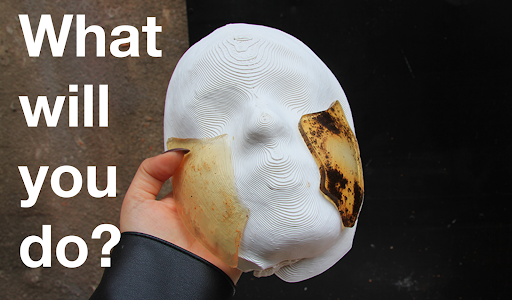
Students are requested to submit all the material requested by the faculty + their reflections about the seminar on their personal blog on the MDEF repository on GitHub within a maximum of 1 week after final presentations of the seminar.
In addition, videos and presentations must be submitted in the Submission folder within the seminar's Google Drive folder, which we share with you.
Unpacking Intelligent Machines⇝
Group deliverables:
- Forensic Report (PDF + hackmd): report template outlining key identification details, examination steps, testing procedures, findings, and conclusions for documenting the disassembly and analysis of any electronic component.
- Inventory (PDF + hackmd): A comprehensive component sheet that provides key functional insights, technical details, example code, real-time usage guidance, and clear wiring diagrams for understanding and integrating any electronic component.
Individual deliverables:
- Personal Reflection Post on the student’s web page: a short weekly reflection that must include direct links to the group Forensic Report and Inventory.
The Machine Paradox (TAUMS)⇝
Group deliverables:
-
Video (video file in Drive): 30–60 seconds, minimum 1080p, stabilized; include titles (team, artifact name, IAAC/Fab Lab BCN), and acknowledge open-source music and/or recorded machine sound.
-
Presentation (Slides in PDF): process, intent, context, materials/parts, system diagram, algorithms/flow/pseudocode, photos, iterations, learnings.
Individual deliverables:
- Zine on the student’s web page: publish a personal zine entry and include direct links to stored in Drive.
Grading Method⇝
Grading criteria will be defined by faculty during the module.
European Credit Transfer and Accumulation System (ECTS)
5 ECTS
Course Resources⇝
- Foresnic report themplate
- Component themplate
- Miro Board
- Unpacking Intelligent Machine Presentation
- The Machine Paradox Presentation
- TAUMS Showcase
Additional Resources⇝
Bibliography and Background Research Material⇝
They are ordered from shorter to longer so you can start with a short reading essay in your busy schedule
Some of the books can be found online for free, use google and archive.org
Getting Started with Arduino, Banzi, Massimo. Maker Media, Inc, 2008 (ISBN 9780596155513) 128 pages.
Fifty Dangerous Things (You Should Let Your Children Do), Tulley, Gever. Tinkering Unlimited, 2009 (ISBN 9780984296101) 130 pages.
The Design of Everyday Things, Norman, Donald A. Basic Books, 1988 (ISBN 9780465067107) 240 pages.
The Hacker Ethic: and the Spirit of the Information Age, Himanen, Pekka. Random House, 1999 (ISBN 9780375505669) 256 pages.
Hacking Electronics: An Illustrated DIY Guide for Makers and Hobbyists: An Illustrated DIY Guide for Makers and Hobbyists, Monk, Simon. McGraw-Hill/Tab Electronics, 2012 (ISBN 9780071802369) 304 pages.
Designing Reality: How to Survive and Thrive in the Third Digital Revolution, Gershenfeld, Neil. Basic Books, 2017 (ISBN 9780465093472) 304 pages.
How to Diagnose and Fix Everything Electronic, Geier, Michael Jay. McGraw-Hill/Tab Electronics, 2010 (ISBN 9780071744225) 316 pages.
Technology Choice: A Critique of the Appropriate Technology Movement, Willoughby, Kelvin. Intermediate Technology Publications, 1990 (ISBN 9781853390579) 368 pages.
Make It So: Interaction Design Lessons From Science Fiction, Shedroff, Nathan. Rosenfeld Media, 2012 (ISBN 9781933820989) 368 pages.
Building Open Source Hardware: DIY Manufacturing for Hackers and Makers, Gibb, Alicia. Addison-Wesley Professional, 2014 (ISBN 9780133373905) 368 pages.
The Master Switch: The Rise and Fall of Information Empires, Wu, Tim. Knopf, 2010 (ISBN 9780307269935) 384 pages. Dieter Rams: As Little Design as Possible, Lovell, Sophie. Phaidon, 2010 (ISBN ) 398 pages.
To Save Everything, Click Here: The Folly of Technological Solutionism, Morozov, Evgeny. PublicAffairs, 2013 (ISBN 9781610391382) 415 pages.
Adventures in the Anthropocene: A Journey to the Heart of the Planet we Made, Vince, Gaia. Vintage, 2014 (ISBN 9780099572497) 448 pages.
Designing for Emerging Technologies: UX for Genomics, Robotics, and the Internet of Things, Follett, Jonathan. O’Reilly Media, 2014 (ISBN ) 504 pages.
The Innovators: How a Group of Hackers, Geniuses and Geeks Created the Digital Revolution, Isaacson, Walter. Simon and Schuster, 2014 (ISBN 9781476708690) 542 pages.
Designing Interactions [With CDROM], Moggridge, Bill. MIT Press (MA), 2006 (ISBN 9780262134743) 766 pages.
Sites⇝
- hackaday.com is one of the best blogs on DIY inventions and hardware hacking
- lowtechmagazine.com many technology choices are political and economic, looking at past forgotten technologies helps us see the future
- news.ycombinator.com is a social news website focusing on computer science and entrepreneurship.
- archive.fabacademy.org 10 years of project from Fab Labs around the world. Sometimes hard to browse but inspiring!
- learn.adafruit.com a really good site for electronics and programming tutorials, especially for beginners
- instructables more and more DIY tutorials, sometimes aren’t good but there’s a lot
Faculty⇝
Santiago Fuentemilla Garriga , is Master degree in Architecture and postgraduate in digital fabrication and rapid prototyping (Fabacademy). He accumulates more than 15 years of experience in studios (OPR, FHAUS, OPERA, Brullet de Luna associats), designing multidisciplinary projects at an international level. Since 2013 he is part of the IAAC - Fab Lab BCN team, as coordinator and leader of Future Learning Unit (FLU), an area of research, design and implementation of innovative educational models that promote growth, learning and creativity to generate opportunities to achieve the goals and challenges of uncertain futures. FLU participates in private and EU funded research projects such as TEC-LA, Shemakes, Ruractive, DOIT, Phablabs 4.0, Creative Minds, among others. He is director of the global academic programs Fab Academy and Fabricademy, in the Barcelona node, executive board of Fab Learning Academy, and faculty of the Master in Design for Emergent Futures (MDEF) and The Master in Design for Distributed Innovation (MDDI).
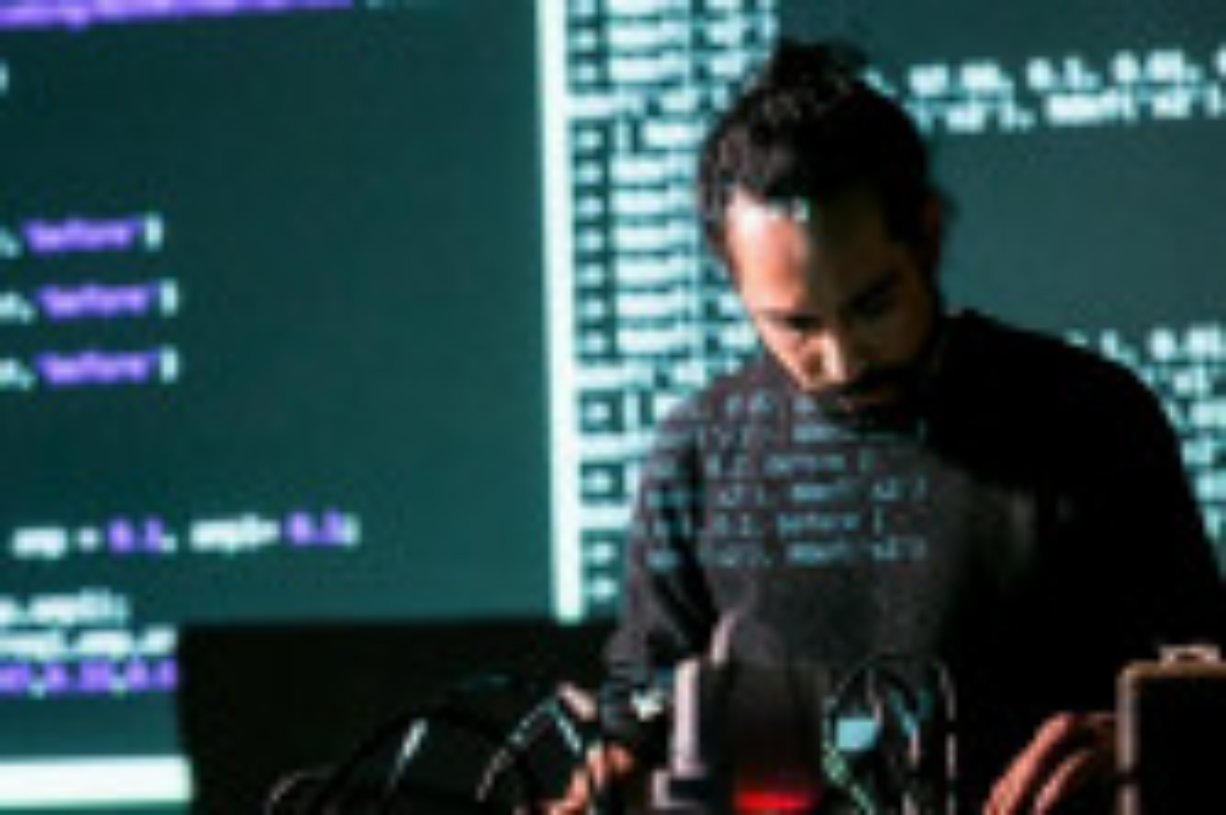
Iván Paz
Iván Paz studied physics, music, and computer science. He obtained his Ph.D. in computer science from the UPC. Ivan’s work revolves around critical approaches to technology, focusing on construction from scratch as an exploratory technique. Since 2010, he has been actively involved in the live coding community, presenting workshops, conferences, and concerts across the Americas and Europe. Currently, he is working with machine learning techniques in the context of live coding and the creation of artistic artifacts. Ivan was the artistic co-director of the European project “on-the-fly” and served as the chair of the Thinking lab at the AI MUSIC Festival ST+ARTS, organized by UPC and Sonar. He has also been a co-coordinator of scientific contributions for the VII International Conference on Live Coding in 2023. Ivan has served as a professor at various universities, including UPC, Elisava, and UNAM. studied physics, music, and computer science. He obtained his Ph.D. in computer science from the UPC. Ivan’s work revolves around critical approaches to technology, focusing on construction from scratch as an exploratory technique. Since 2010, he has been actively involved in the live coding community, presenting workshops, conferences, and concerts across the Americas and Europe. Currently, he is working with machine learning techniques in the context of live coding and the creation of artistic artifacts. Ivan was the artistic co-director of the European project “on-the-fly” and served as the chair of the Thinking lab at the AI MUSIC Festival ST+ARTS, organized by UPC and Sonar. He has also been a co-coordinator of scientific contributions for the VII International Conference on Live Coding in 2023. Ivan has served as a professor at various universities, including UPC, Elisava, and UNAM.
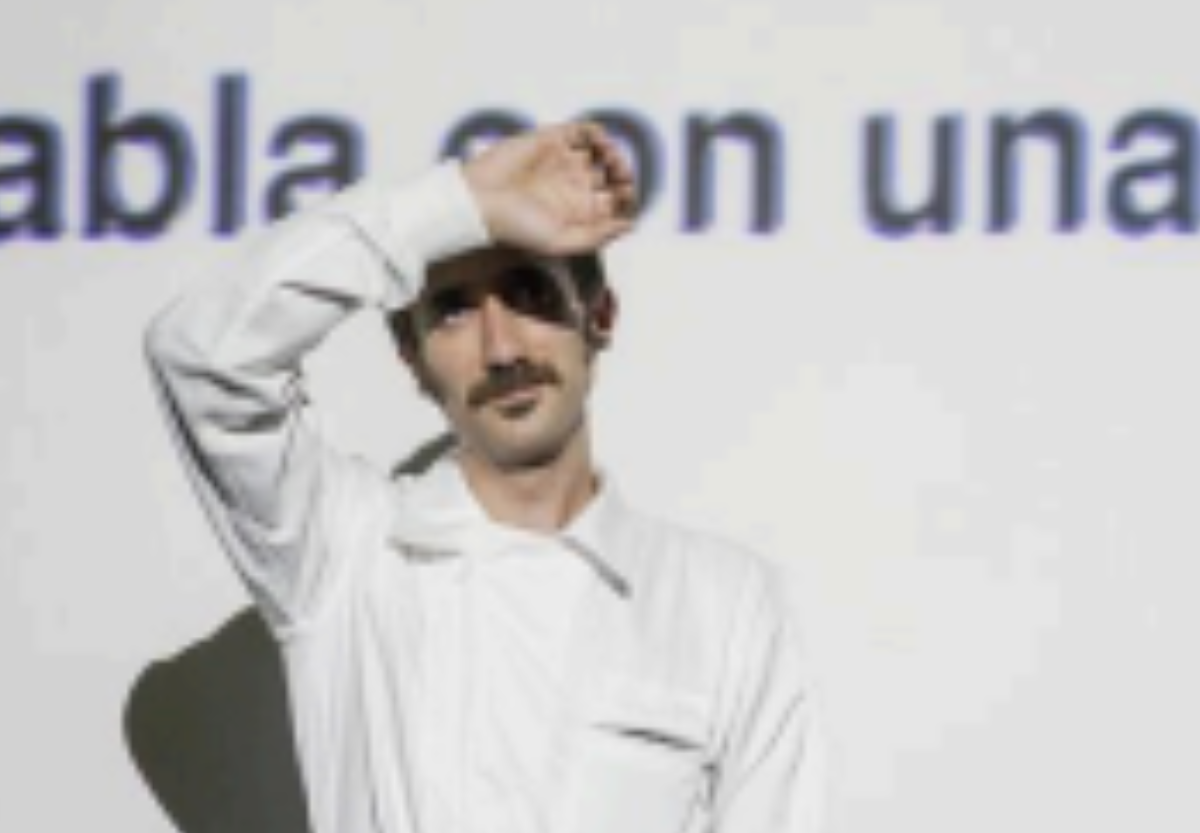
Andrés Costa Maluk
Andrés Costa Maluk, Bachelor of Arts (U. Playa Ancha), Master of Contemporary Art (U. of Lille), and Master of Digital Art (U. Pompeu Fabra), has cultivated an artistic practice that spans various mediums and supports, aiming to establish a dialogue between materiality and the subject of each project. His research and experiments in the art world are humble attempts to understand the contemporary context that surrounds us. In his professional career, he has managed and participated in various projects related to interaction, electronics, video mapping, and web apps for clients such as the Barcelona Provincial Council and the Llum Festival, among others. He has been involved in different collective projects and cultural associations, including axolot.cat, Matics Barcelona, Ene_ene, Escalofrío (Manuel del Camp, Ramón Aldunate, and Andrés Costa), and lettercamp.org (a collaboration between Dimitri Vazemsky and Escalofrío collective).
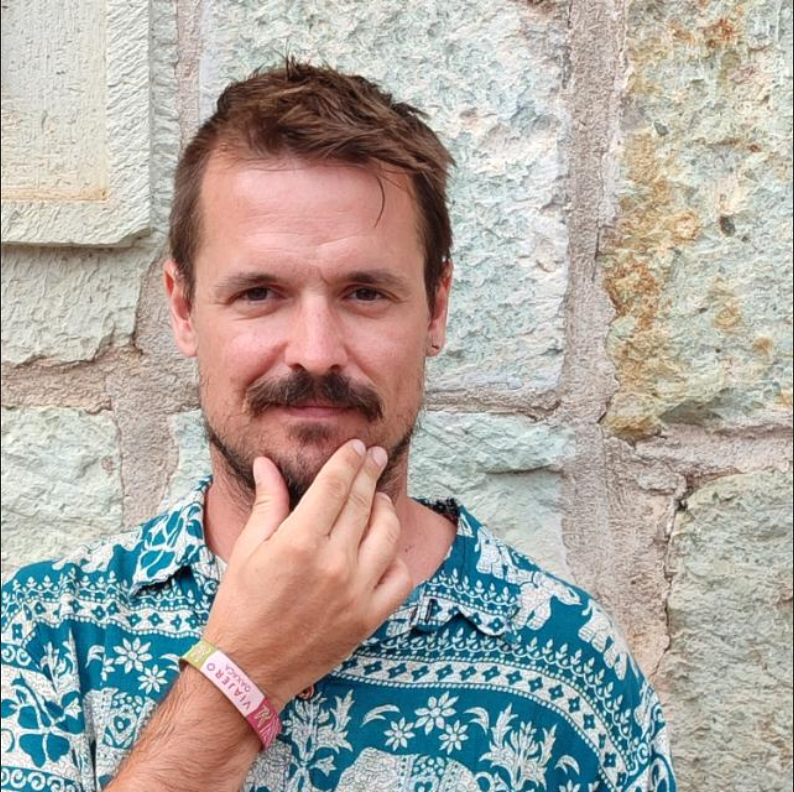
Daniel Mateos
Digital Fabrication Expert
Multidisciplinary maker and educator with skills in 3D design, 3D printing, metalworking, electronics, programming, biology, and extensive education experience. I have developed careers in the fields of biology, data science, and education. I am currently in transition to employment that uses my skills in digital fabrication, metalworking and electronics. I’m an extremely capable self-learner, very sociable and would love to integrate in a team with shared values to have an impact in the world, preferably at local scale.
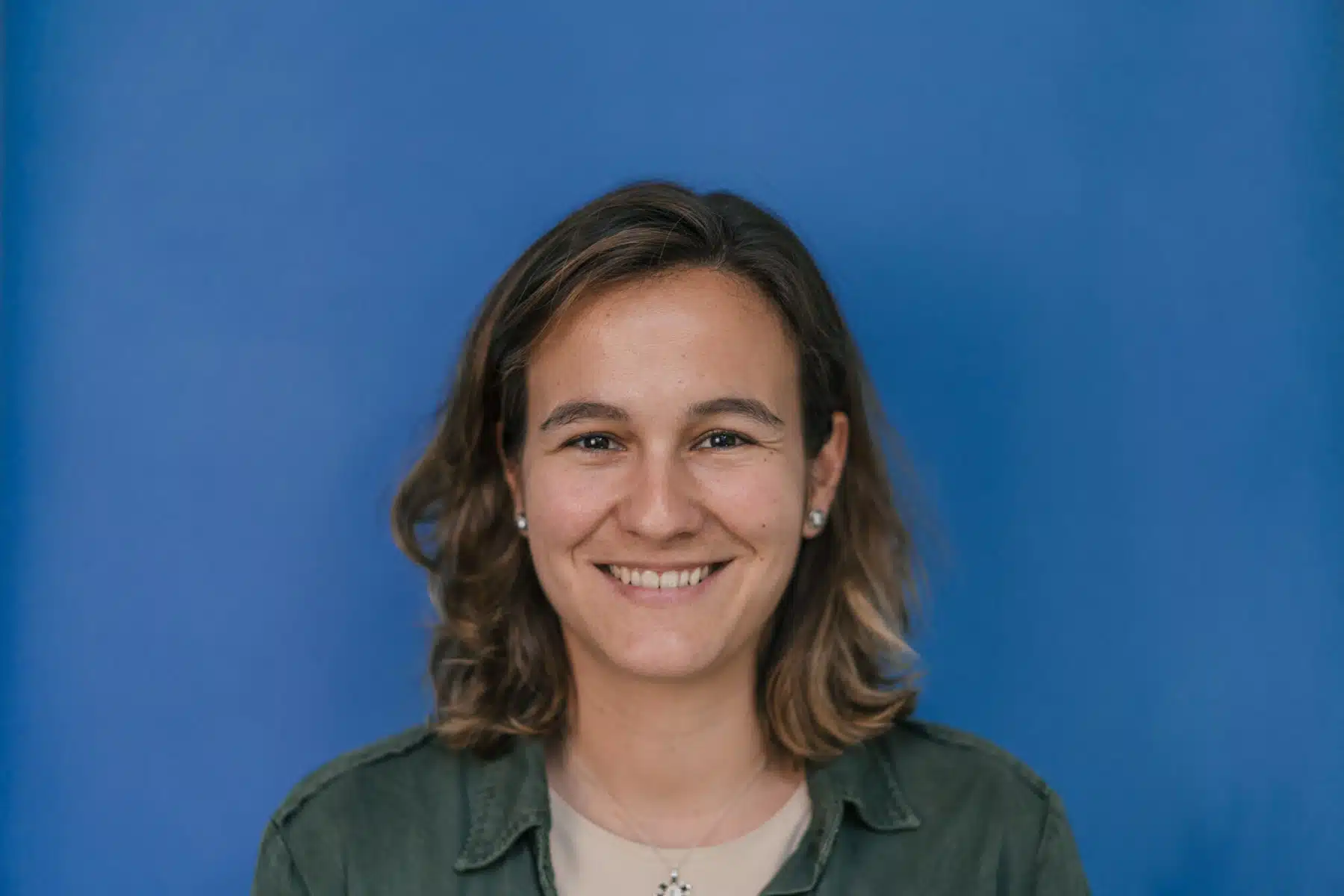
Julia Leirado Silva
Future learning expert
Julia Leirado is an architect based in Barcelona interested in educational innovation and how new technologies and digital fabrication tools can intersect with traditional education curriculum and their impact on improving the learning experience. She holds a Graduate Diploma in Architecture from the Polytechnic University of Catalonia (ETSAB), a master’s in Project Management (EAE), and a Fab Academy diploma in digital fabrication from the Fab Lab Network.
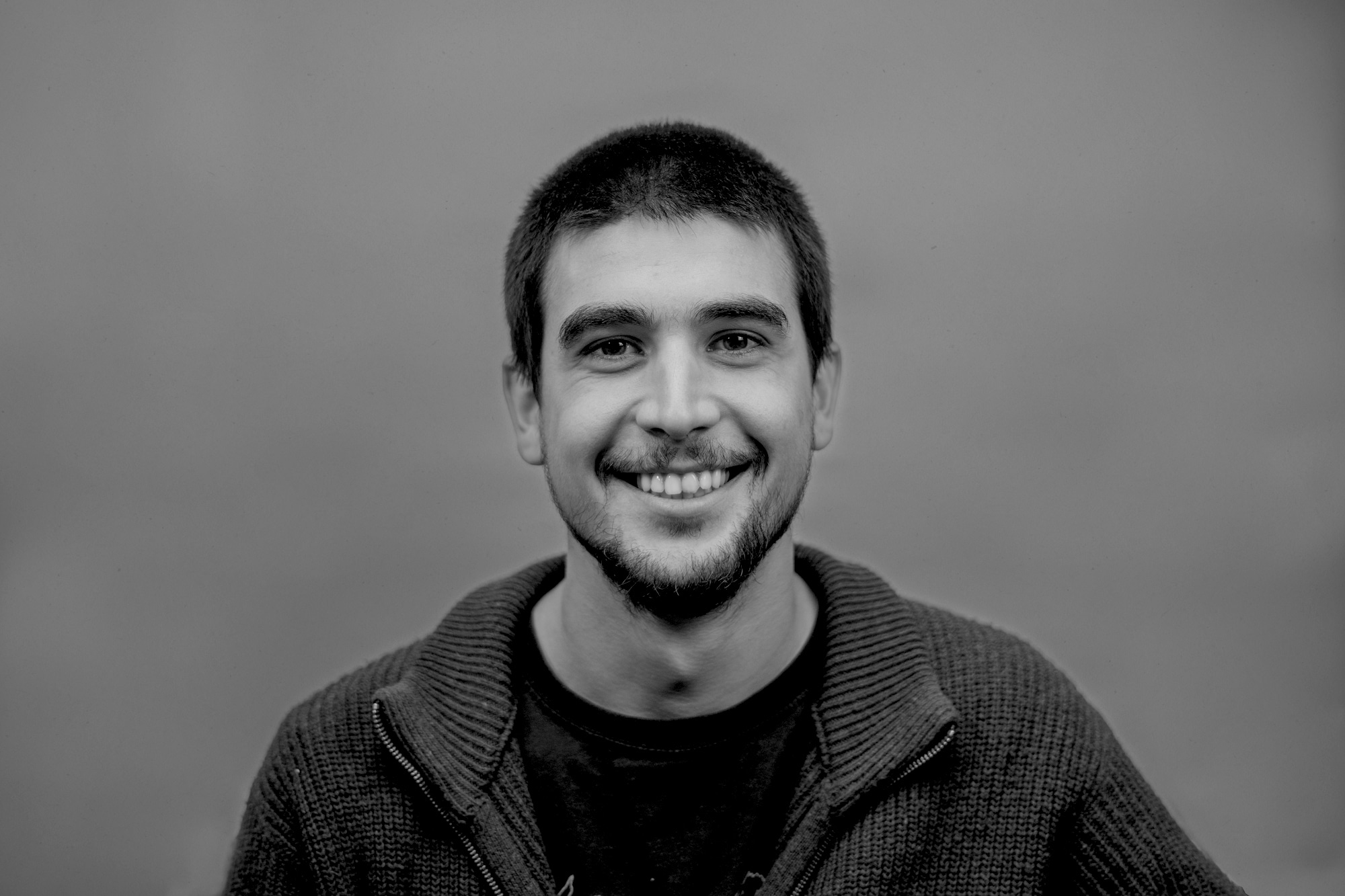
Adai Surinach
Digital Fabrication Expert
Adai graduated with a superior degree in engraving and stamping techniques at Llotja School of Art and Design in Barcelona. After graduation, he became interested in 3D printing, taking him to get involved in Fab Labs until becoming an intern at Fab Lab Barcelona. Shortly after, Adai undertook Fab Academy in 2022 and started working at the lab in different projects like Smart Citizen and as an instructor in academic programs.
Born in Barcelona in 1995, Mikel has been doing art, graphic design and programming for video games and cinema until he discovered the amazing world of digital fabrication, the OpenSource community and makers to be related to different processes and characters of the sector. Until October 2021 he has been working as Manager of Fablab Barcelona, organising different things around the lab, including workshops, taking care of the machines, doing the necessary maintenance and teaching students not only how to use them but also how to become "makers". He has also been developing projects to empower people and communities to have access to technology in the most open way. When asked what he liked most about Fablab Barcelona he answers without a doubt: "Doing things" but "Doing open things". Since he left Fab Lab Barcelona in October 2021, he has been opening a new studio in Barcelona, called Facto, located in the Gràcia neighbourhood, where he has his own workshop and workspace for the development of projects, among which he is founding a design brand that works with recycled plastics.

